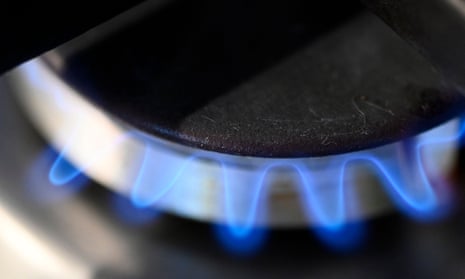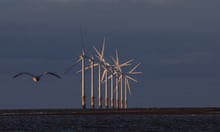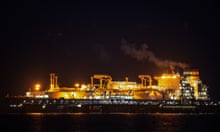HSBC has slashed its forecasts for future wholesale gas prices in response to mild weather in Europe – raising hopes of a sharp decline in household energy bills.
The bank cut its 2023 forecasts for the price of gas traded in Europe by about 30% and its forecast for 2024 by 20%.
HSBC noted that prices had halved since mid-December to levels not seen since before the invasion of Ukraine, which pushed up already high gas prices, and that mild weather had reduced gas demand.
The Kremlin’s reduction of gas piped to Europe had prompted concerns that countries could be left short of gas this winter. National Grid had warned that a sudden cutoff in Russian gas in Europe, and a cold snap, could lead to power cuts.
However, the combination of high storage levels, mild weather and a cut in usage by households and businesses has eased the situation.
UK gas prices have fallen to just below 170p per therm, down from record highs of more than 600p in August but still three times higher than average prices before the energy crisis began in 2021.
The lower prices are expected to feed through to bills later in the year when suppliers’ contracts for energy bought in advance run out. Annual bills are expected to fall below £2,500 from July.
Kim Fustier, the head of European oil and gas research at HSBC, said: “Following a short-lived cold snap, a relatively mild winter has substantially reduced gas demand for heating … Europe is out of the woods for this winter, even if cold weather returns.”
Fustier said Europe’s gas consumption was down 12% in December on the same month the year before, with January down 25% so far. Meanwhile, European gas storage is now 83% full, compared with a historical average of less than 70% and is expected to end March just above 50%, far higher than the 30% originally expected.
However, she said increased competition for liquified natural gas (LNG) from China could prove the “key driver” in gas prices in 2023 as the country reopens after Covid restrictions. There are concerns that countries could struggle to replace the significant Russian gas suppliesstill available in the first half of 2022 before Moscow throttled pipelines.
after newsletter promotion
Fustier said: “It looks increasingly likely that the worst of Europe’s gas crisis and the peak in prices are now behind us. While this is undoubtedly good news for energy users and for governments, it’s worth remembering that gas is still not cheap, but rather less expensive.”
HSBC expects conditions to only “normalise” by 2026 when newly built LNG facilities in Europe open.









